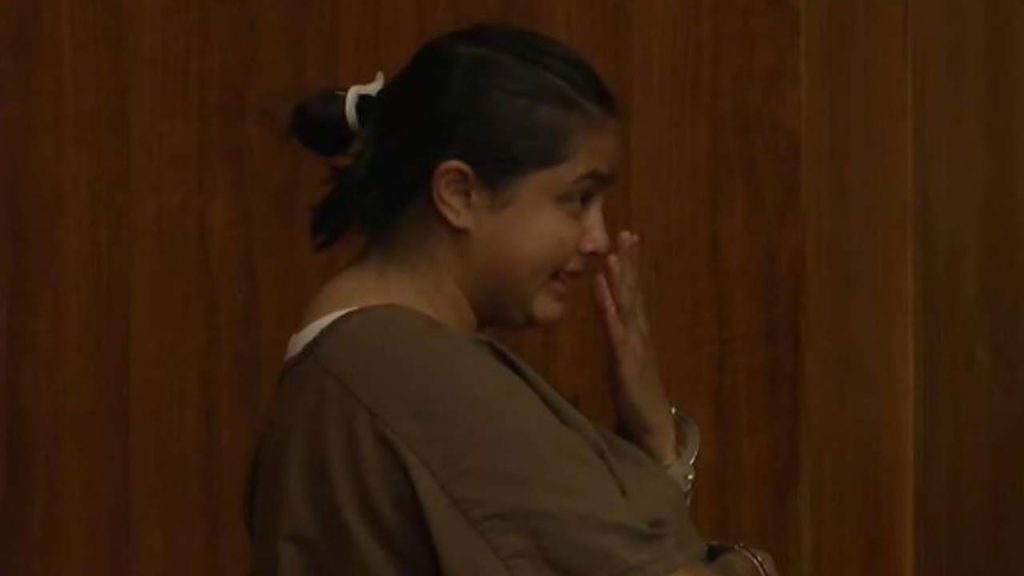Riddhi Patel, a 28-year-old anti-Israel protester, broke down in tears during her arraignment in California after allegedly making death threats against public officials at a city council meeting. Patel pleaded not guilty to 18 felony counts, claiming that city council members and the Republican Mayor Karen Goh did not support a Gaza cease-fire resolution against Israel and had implemented additional security measures at city hall. She was ordered to be held on $1 million bail and to stay at least 500 yards away from city hall.
During the public comment section of the city council meeting, Patel expressed her anger towards the council members by stating that she hoped oppressed minorities would execute them, claiming even Jesus Christ would kill them, and threatening to go to their houses and murder them. She also called out the mayor and city council for installing metal detectors in the building, accusing them of trying to “criminalize” protesters. Patel ended her remarks by saying, “We’ll see you at your house. We’ll murder you.”
As Patel finished her speech, Mayor Goh called on police officers to remove her from the building. Patel was subsequently arrested and charged with eight counts of threatening state officials and 10 counts of making threats with the intention to terrorize. Despite her actions, Patel is reported to have grown up in Bakersfield and currently works as an economic development coordinator for a local nonprofit. She is scheduled to appear in court on April 24.
The incident involving Patel highlights the extreme emotions and beliefs that can accompany political activism. Her threatening statements towards public officials not only raised security concerns but also shed light on the complexities and divisions surrounding the Israeli-Palestinian conflict. The case brings attention to the importance of expressing dissent and engaging in activism in a peaceful and lawful manner, rather than resorting to violence or threats.
The arraignment of Patel in California represents a clash between freedom of speech and the boundaries of that freedom when it comes to making threats against public officials. It also underscores the need for peaceful and constructive dialogue in addressing contentious political issues. The emotional response of Patel serves as a reminder of the deep-seated convictions and passions that can motivate individuals to take action, but also emphasizes the importance of respecting the rule of law and the rights of others in the process.
The charges brought against Patel serve as a warning against the escalation of tensions and aggression in political discourse. By targeting city council members and the mayor with violent threats, Patel crossed a line that led to her arrest and legal consequences. Moving forward, the case of Patel in California serves as a cautionary tale about the potential consequences of resorting to violence and intimidation in political activism. It also highlights the responsibilities that come with exercising freedom of speech and the impact of one’s words on society.
In conclusion, the emotional outburst of Patel in California during the city council meeting underscores the need for restraint and civility in political activism. While individuals have the right to express their views and opposition, resorting to threats and violence undermines the principles of democracy and peaceful dialogue. The case of Patel serves as a reminder of the complexities surrounding political activism and the consequences of crossing legal and ethical boundaries in the pursuit of one’s beliefs. Efforts to promote understanding, engage in constructive dialogue, and respect differing perspectives are essential in moving towards a more harmonious and inclusive society.













